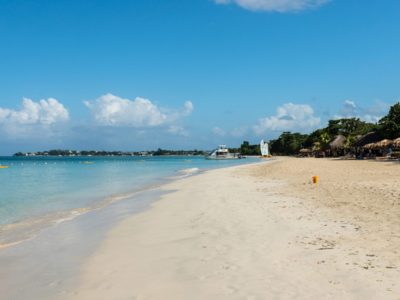Saint Lucia is at the top of everyone’s dream list of Caribbean island getaways. The island is blessed with beautiful beaches, fascinating volcanic geography, and impressive hiking trails. It’s no wonder you’re debating a trip; Saint Lucia is one of our favorite places, too.
However, these planning stages do beg the question: Is Saint Lucia safe? What should you expect from your trip in terms of crime and natural disaster risk? As a whole, we’d tell you to exercise normal precautions, but that’s easy enough to say. What exactly are “normal” precautions anyway?
In this guide, we’ll examine safety in Saint Lucia. Get ready to dive deeply into specific crime rates, natural disaster risk, and more. We can help make Saint Lucia one of the safest destinations you could possibly visit.
Table of Contents
Is St Lucia Safe?
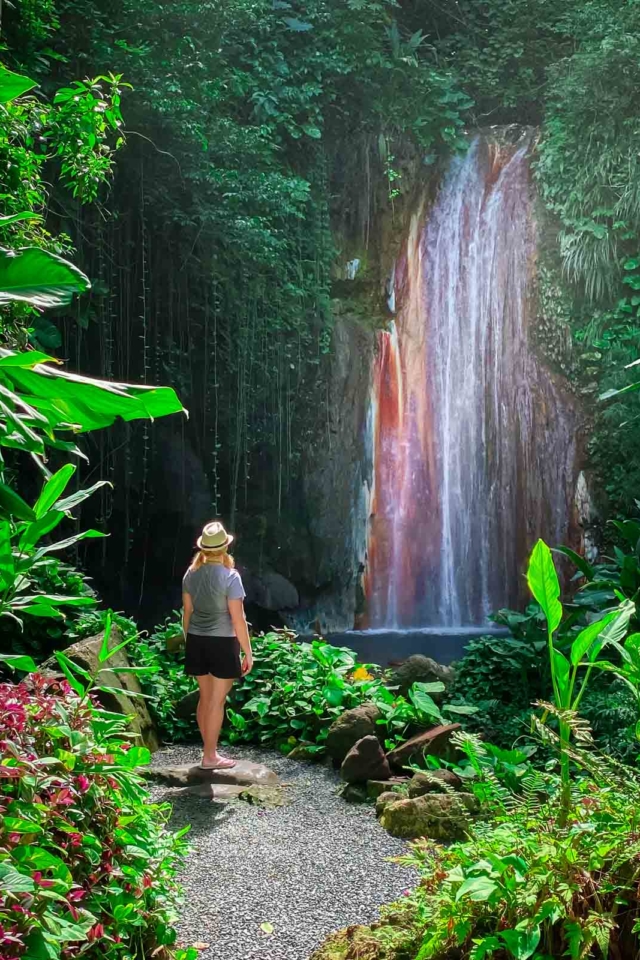
We know that not everyone has the luxury of unlimited time to research Saint Lucia. If you want quick answers, don’t worry; we’ve got you.
Here are the main things you should know about the risk of travel in Saint Lucia:
- As a whole, Saint Lucia is one of the safest island countries to visit in the Caribbean. The major resort areas and most neighborhoods are incredibly safe, with millions of visitors traveling to Saint Lucia hassle-free each year.
- There are some natural dangers in Saint Lucia, including a hurricane risk from June until November. The island also has the risk of volcanic eruptions and earthquakes. The chance of a severe disaster occurring is low but cannot be ruled out. It’s wise to know the proper protocols before traveling, have adequate insurance, and avoid high-risk times, like August until October for hurricane risk.
- There are crime incidents in Saint Lucia, especially at large events like the Saint Lucia Carnival. Be wary of petty crimes like bag snatching and pickpocketing in heavy crowds. However, also be aware that there’s a serious crime risk, including armed robbery. These are thankfully infrequent incidents typically occurring in remote areas or after dark.
- There are some strict cultural differences, enforceable by law. The main thing to note is very conservative attitudes to LGBTQ+ relations across the country. While members of the LGBTQ+ can still travel to Saint Lucia, it’s advisable to be mindful of things like public displays of affection. You should also note that drug offenses carry severe penalties, sometimes including the death penalty. It’s also illegal for anyone to wear camouflage clothing, a rule not even children are exempt from.
- Speaking of things that are enforceable by law, you need a temporary driving license to rent a car in Saint Lucia. Some hire companies can obtain this pass for you, but it’s smart to ask in advance; otherwise, you’ll have to factor in an in-person visit to the official Department of Tourism. Quick side note: never stop for pedestrians flagging down your vehicle, and always keep your doors locked while driving.
St Lucia Crime Rates
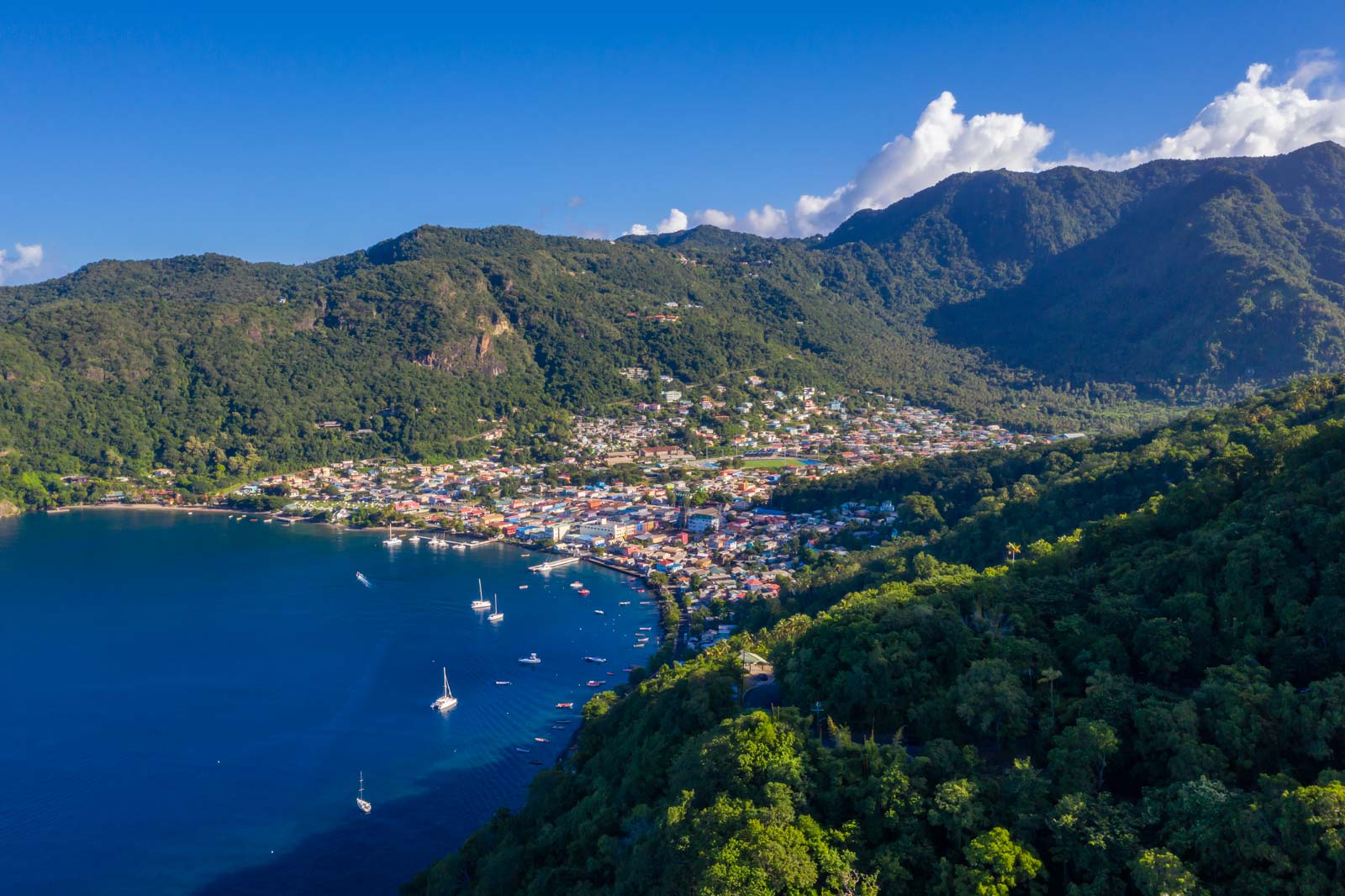
Unfortunately, there’s actually been a spike in Saint Lucia’s crime rates in the past three years, recently scoring a homicide score of 77.6 percent in 2022. There’s an overall crime score of 70.24 on Numbeo, which is deemed high risk, and the safety score falls by half when you walk during the day versus walking at night. that being said, we felt incredibly safe when we were visiting the island.
As a general rule, its isolated areas attract opportunistic assaults and theft. In the capital of Castries, there’s a more clockwork pattern of regular crime, like drugs and armed robbery, in places like the (ironically named) Serenity Park and Vieux Fort. This is typical amongst big cities, and we’d advise you to keep your wits about you. It’s wise to check out the specific crime hotspots of particular destinations in Saint Lucia that you’re visiting.
As always, take extra care or simply avoid traveling after dark. Solo night walks on beaches and drunken rides in taxis without a pre-agreed fare are all recipes for disaster. Similarly, take extra care in the daytime when major events like the Saint Lucia Carnival are taking place.
Keep jewelry and expensive items at home or well-concealed when in Saint Lucia. Despite actual events of targeted tourists being low in this beautiful country, a good rule when traveling anywhere is “bring it if you’re prepared to lose it”. In the case of a mugging, never try to fight for your belongings.
Police Force Presence
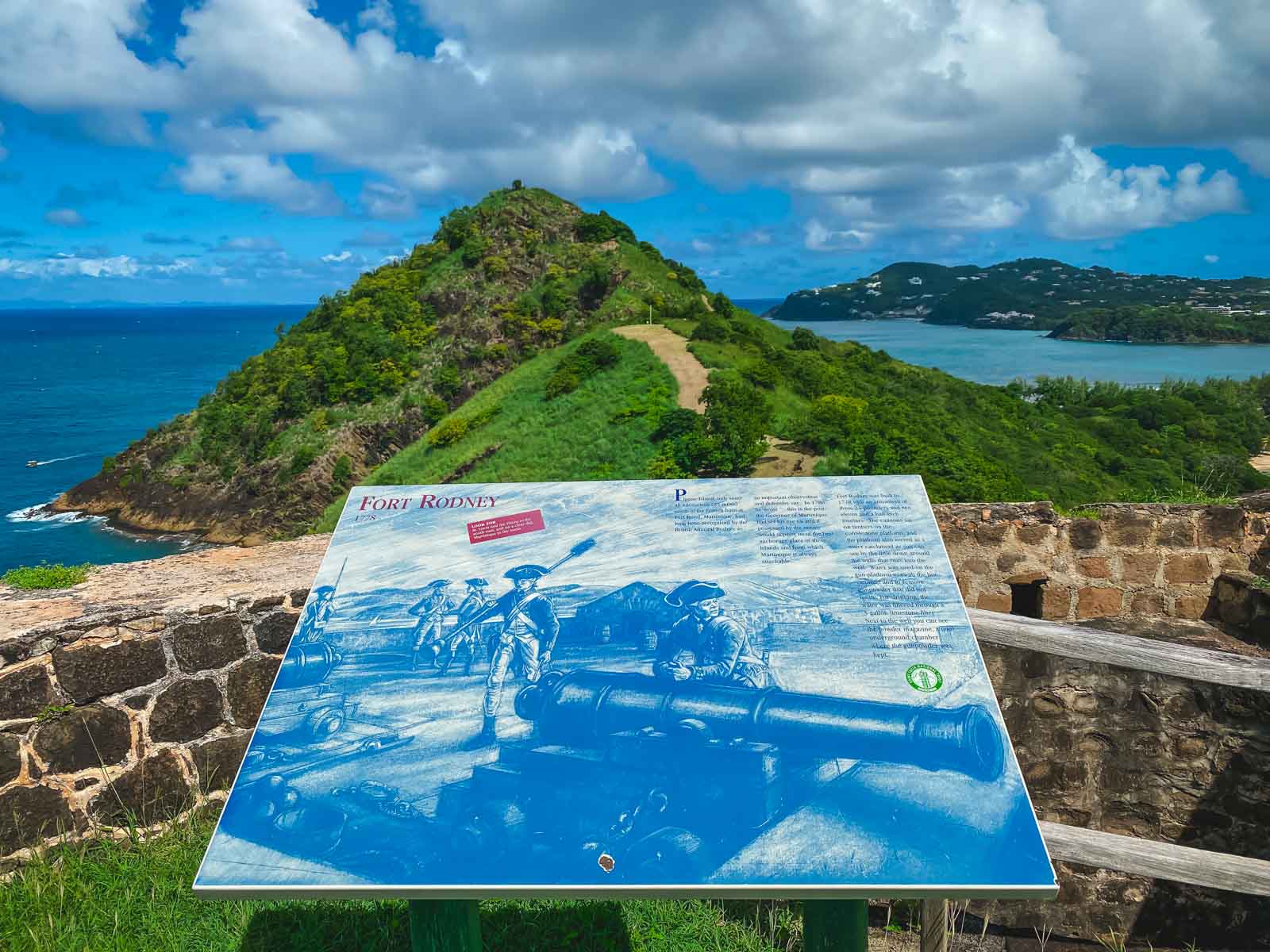
As a whole, the Royal Saint Lucia Police Force is an effective system on the island. It is a little short-staffed and underfunded, with occasional accusations of corruption in the form of bribes. However, the police force receives support from the US in its operations and does a good job of handling justice on the island. You can contact the Royal Saint Lucia Police Force on 911 and know that they are the best point of contact in a dangerous situation.
However, we recommend reviewing the rules and cultural differences in Saint Lucia before traveling. These are the following laws you should know:
- You must carry a temporary Saint Lucia license if renting and driving a car on the island.
- Drugs, including marijuana, aren’t legal in Saint Lucia and carry severe legal repercussions, including the death penalty.
- It’s illegal for anyone to wear camouflaged clothes.
- LGBTQ+ activity is currently not legal, and showing affection in public is potentially dangerous.
The police are effective in Saint Lucia, so don’t get on the wrong side of them either! This is particularly true if you’re driving rather than using public transportation.
Natural Disasters in St Lucia
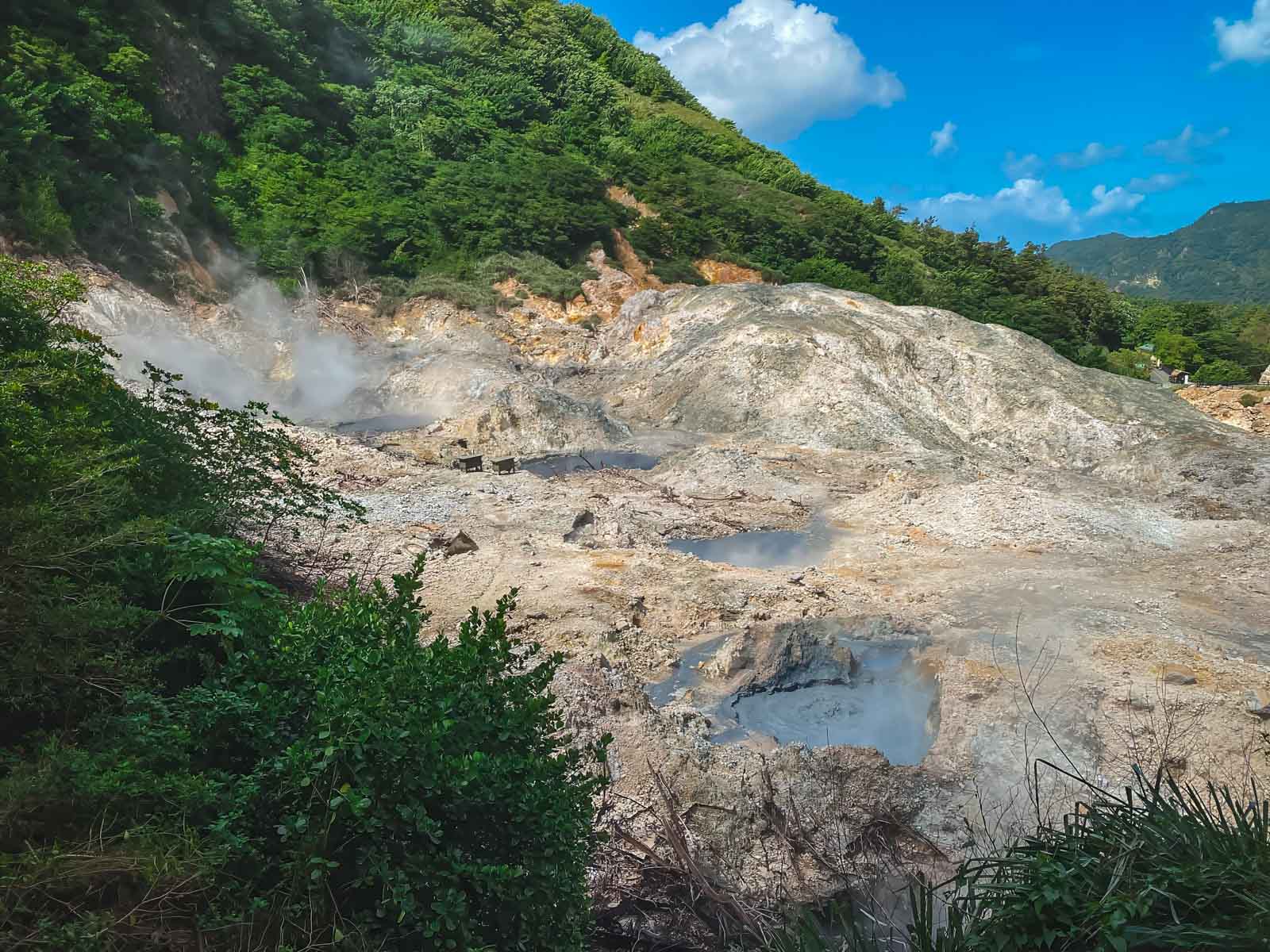
Saint Lucia isn’t immune to natural disasters, although there’s usually minimal disruption or severe events. Generally speaking, these are the three main risks:
- Volcanic activity
- Earthquakes
- Hurricanes
Volcanic activity and earthquakes are rare and pretty hard to predict. However, you can subscribe to alerts when traveling to Saint Lucia, which will promptly notify you of updates and emergency courses of action. It’s something to be mindful of and subscribe to before flying to the island.
Hurricanes are more regular, and Saint Lucia has a hurricane season between June and November. There are rarely truly dangerous hurricanes in Saint Lucia. Still, flash flooding, trip disruption, and damage are a real risk. In an ideal world, you should avoid this period, especially from August until October, when hurricanes are at a peak.
If that isn’t possible, though, make sure to check out our next section.
Hurricanes in St Lucia
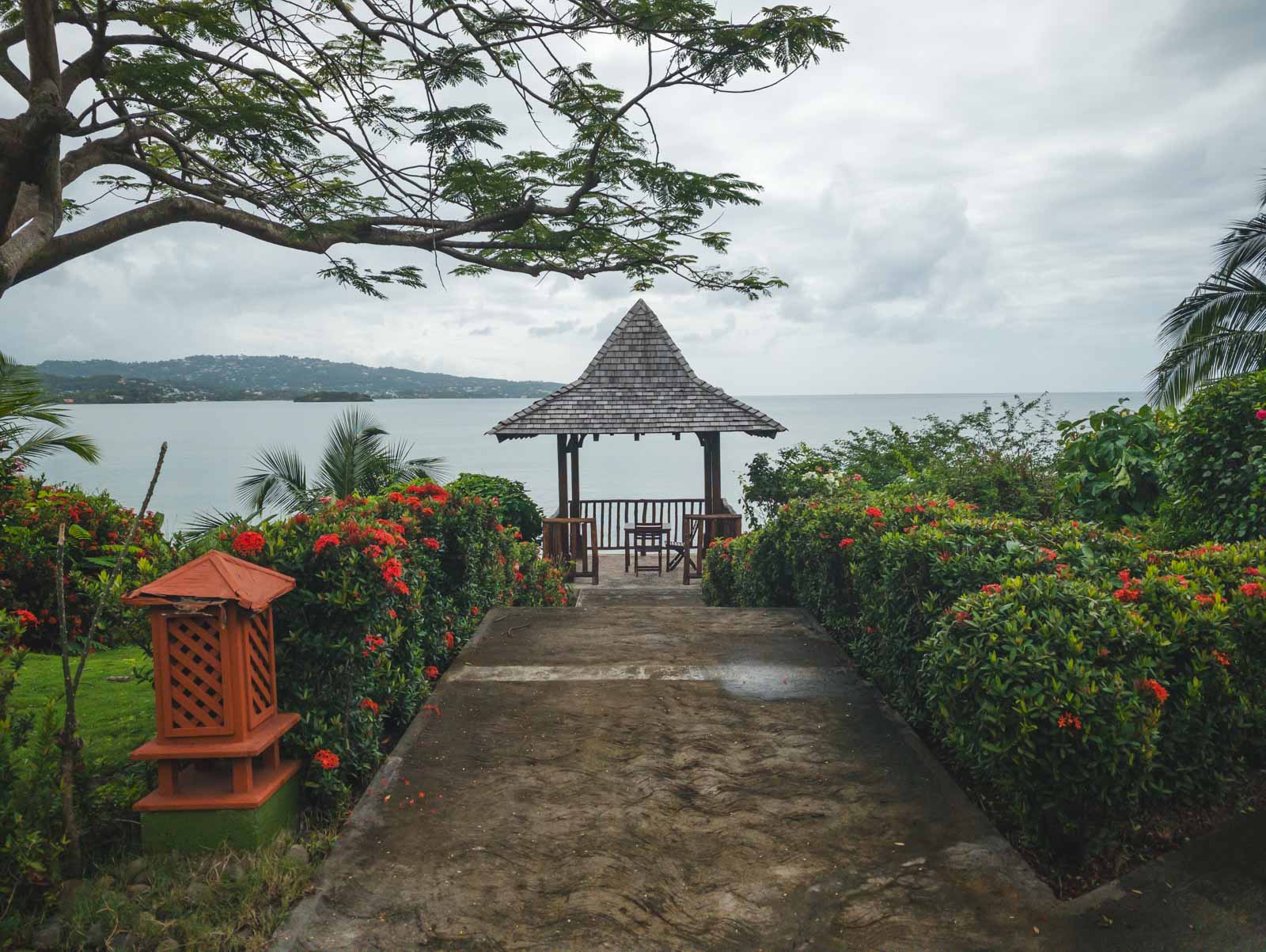
So, if you are dead set on holidaying in Saint Lucia between June and November, here’s what you need to know. Hurricanes are measured on the Saffir-Simpson Hurricane Wind Scale. This ranks between 1 and 5 in severity and helps to classify damages and determine whether hurricanes are a serious threat.
Here’s the ranking system you can expect:
Category 1: Winds of 74-95 mph are dangerous and can cause damage, such as damage to powerlines that could cause outages.
Category 2: Winds of 96-110 mph that are very dangerous and will cause damage, like all powerlines destroyed and power out for weeks.
Category 3: Winds of 112-129 mph that cause devastating impact with electricity and water access damaged for weeks.
Category 4: Winds of 130-156 mph that cause catastrophic damage and some areas to be uninhabitable for many months. There may be damage to some houses.
Category 5: Winds of 157 mph that will cause catastrophic damage, with most areas uninhabitable for many months. A high percentage of houses will be destroyed with collapsed roofs and walls.
Staying Safe in St Lucia Hurricanes

So, how do you stay safe in this scenario? Well, you can take some simple steps to maximize your chances of safety in Saint Lucia’s hurricane season. In this section, we’ll give you the top three.
Nearly all hurricanes impacting Saint Lucia are in category 1 or 2, so you shouldn’t experience the most severe end of the scale. But you should be prepared for things like power outages and impacted flights. It’s a good idea to have insurance to cover you for any unexpected costs and to be flexible with your itinerary. Cancellation insurance is always a handy card to have up your sleeve!
Here are some extra advice for you.
1. Carry a Charged Powerbank
A charged power bank is essential for power cuts. Your phone is your lifeline; it’s a way to contact the police or an ambulance and navigate to places like hospitals (you should already have learned where they are as a precautionary measure). Carrying or keeping a power bank charged is a great way to protect yourself in case of an outage.
2. Know Your Hotel or Accommodation’s Emergency Policies
Does your hotel or accommodation have a specific procedures plan? If they don’t tell you when you arrive or when you get your booking confirmation, then ask. Make sure that you know how people around you will act if there’s a hurricane and if there are any accommodation-specific ways to stay safe.
3. Factor in Having No WiFi
This may sound obvious, but there’s no WiFi if there’s no power. This means you’ll lose access to things like Google Maps, your banking app, and even just contact with friends and family back home. Having a backup plan, like offline maps or the ability to just text your ISP to upgrade to a roaming package, is vital. You should never assume that you’ll have WiFi to stay safe.
Staying Safe on St Lucia Beaches
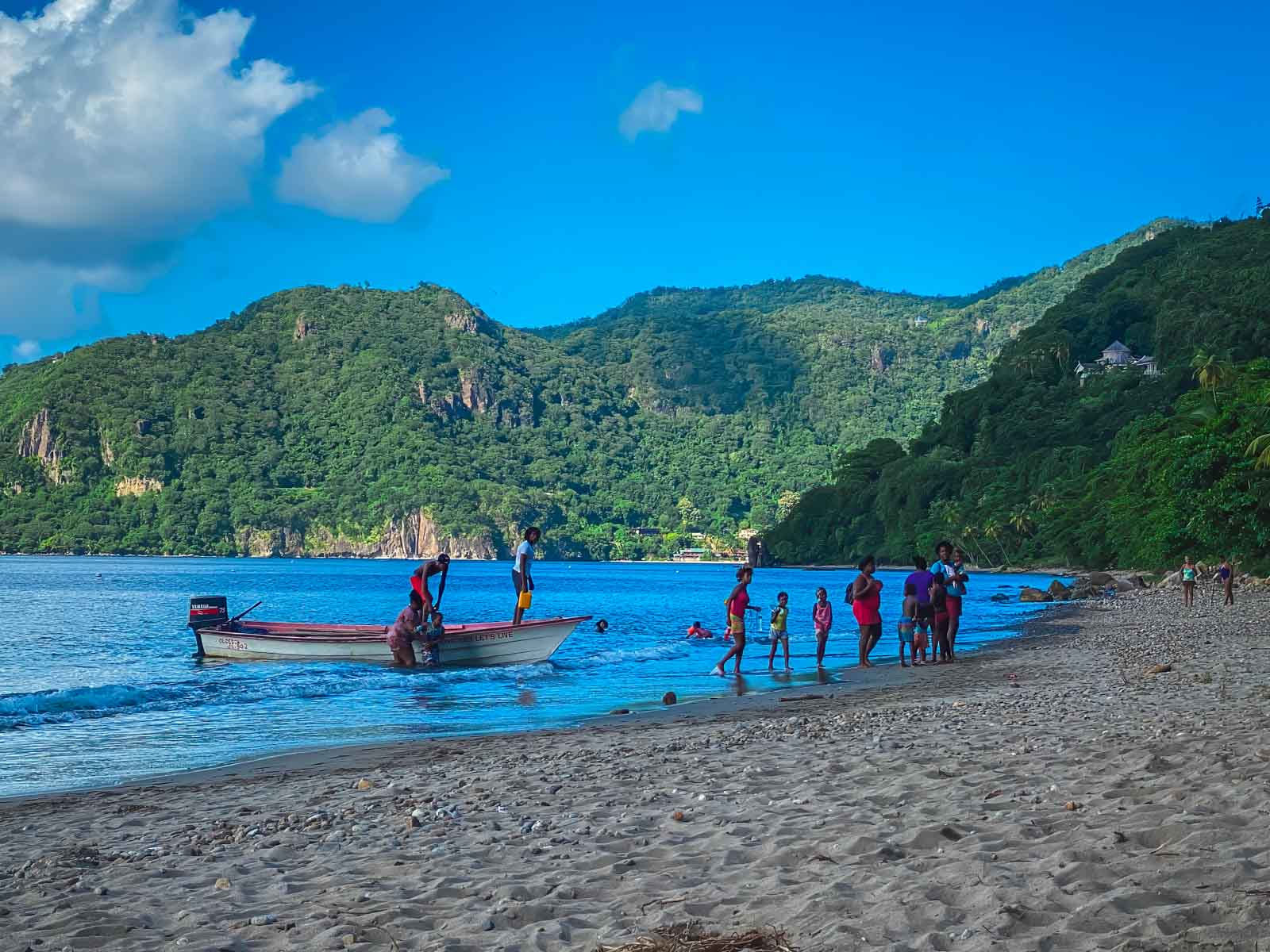
You can never be too careful when it comes to the sea. There’s always a slight risk, and the ocean can be dangerous. When staying safe on St Lucia’s beaches, the most important thing to know is that the island doesn’t use warning flags. This means that you may not be warned if there are areas unsuitable for swimming or with riptides.
Off the back of this, the island’s eastern shoreline also opens out onto the Atlantic Ocean. This means waves can get seriously choppy, especially in hurricane season when winds pick up generally.
Not having restricted areas means you must use your common sense when deciding where to swim. And if you’re unsure, ask your hotel for advice or visit a more protected beach, like one of the private resort beaches with a 24/7 lifeguard.
Need some inspiration? Check out the best beaches here.
Weather in St Lucia
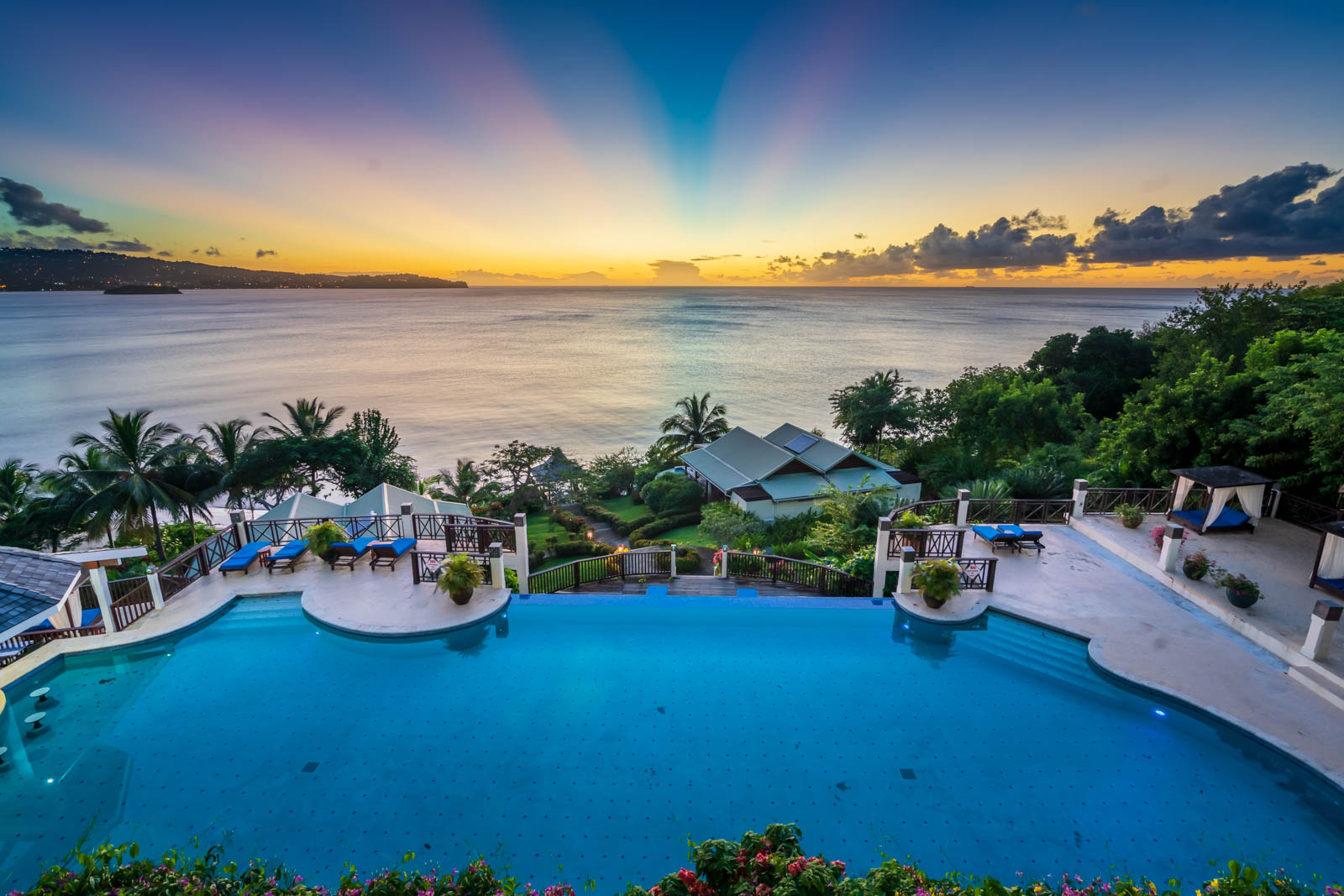
Knowing the weather of your destination before departure can literally be a lifesaver. If you visit St Lucia in July, you’ll know that it’s hurricane season with a high storm risk. Weather matters, as it can hugely impact your trip. Knowing your destination inside out is the real way forward.
St Lucia has two main seasons: the wet season from June until December and the dry season from December until late May. Temperatures are also constant at 78-83 degrees Fahrenheit. But we’ll take a closer look at the seasonal variation month by month.
Spring
This is the most popular time to visit St Lucia and falls into the Spring Break dates. March is the driest month in St Lucia, with April also fairly dry and May starting to see just a little more rain. You should visit during this time if you want clear skies for sightseeing and plenty of hikes and beach days.
Summer
St Lucia is not everybody’s cup of tea in summer, and it is right in the middle of the June to November hurricane season. July and August have the highest levels of humidity, with regular hard spells of downpours. That said, prices are lower, and attractions are quieter.
If you feel like an off-season holiday, it’s still worthwhile. You can limit the risk of being impacted by a hurricane with adequate research beforehand and cancellation insurance. Just be prepared to take a few taxis on wet days.
Fall
The hurricane season grinds to a slow halt around November, which means fall entirely falls into the category of “hurricane risk”. We wouldn’t really recommend this time of year. Even if there are no hurricanes, it falls clearly into the wet season (which runs from June to December), so you’re looking at lots of rainy days.
Winter
December to February is when things start to change in St Lucia. You can wave goodbye to the hurricane risk and hello to the transition from wet to dry season. December is likely to still experience plenty of wet days (an average of 16), but January drops (an average of 14 wet days), and February drops even further (just nine). You could definitely have fun booking to visit St Lucia in winter; just aim for that later window.
5 Tips To Stay Safe in St Lucia

Staying safe in St Lucia is totally manageable. It’s just a case of doing research and taking basic precautions. It is a safe destination; it just requires a bit of pre-departure prep and in-country savviness.
Here’s our advice on the top five ways to stay safe when traveling to St Lucia.
1. A Note on Cash
It’s worth noting that credit and debit cards are only accepted at some shops, in local taxis, and in some hotels. To avoid this, we’d suggest always carrying dollars as loose cash. This way, you don’t have to draw out money anywhere dangerous or get into altercations accidentally.
Carrying a wallet of cash is also handy when managing the risk of a dangerous mugging attack. So many people hail the use of a dummy wallet trick, which just involves carrying a fake wallet with fewer dollars or non-valuable cards in it. In the event of a mugging, you can hand over that wallet instead of your real one – brilliant, right? You might as well use this cash to double up as a dummy wallet when traveling to St Lucia.
2. Smart Accommodation
It’s worth reiterating that where you are located matters. Make sure you’re a safe distance from any rough areas, whether you’re in cities or more rural towns. Doing that research before committing to accommodation is a game changer regarding safety. You’ll thank yourself later when you can walk hassle-free to the main attractions and amenities.
3. Registered Taxis
We shouldn’t have to emphasize this, but it’s so important that we add it to this list anyway. Only ever use registered taxis, which are marked by a light blue number plate. Frankly speaking, if you get into an unregistered taxi, nobody knows who you’re with or where you’ll end up. It isn’t a safe traveling practice, so don’t take the risk.
4. Know Your Weather
The significant risk of this beautiful island is the weather. So do your research and know the weather risk of the month you’re visiting. This bit of preparation can make all the difference. If you sense there’s “something in the air,” you’ll be taking the lead in keeping yourself safe.
5. Know the Local Laws
Much of staying safe is just being street savvy. But if you decide to visit St Lucia, you should also know the local laws, which require some research. You should be mindful of the restrictions around drug use, the rules for renting cars, and the conservative attitudes towards LGBTQ+ relationships. This way, you can keep the police on your side.
Tips on St Lucia For Solo Travelers
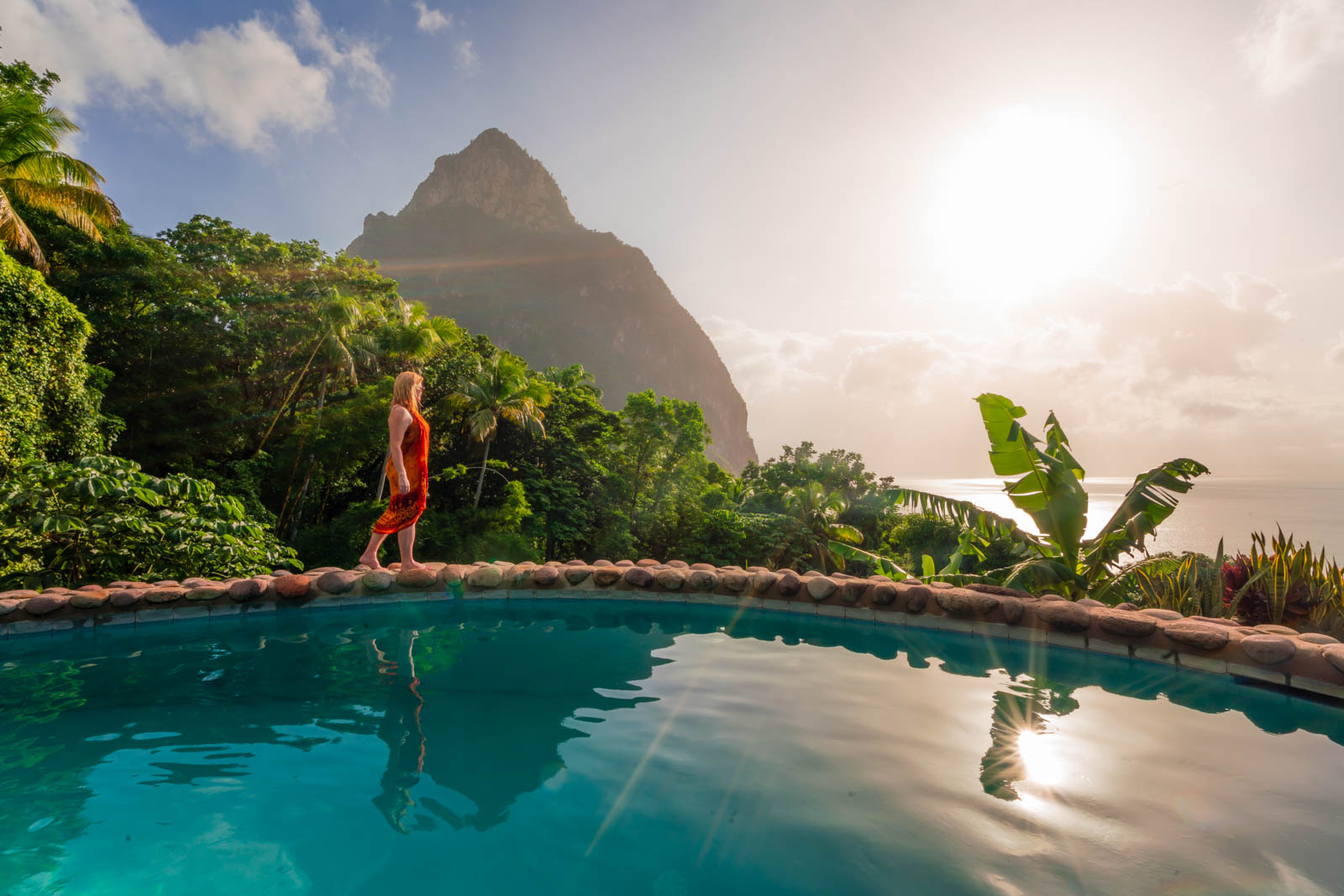
Saint Lucia is such a fascinating destination. And if you don’t believe that straight off the bat, just check out these fun facts. There are a few things to note as a solo traveler, though:
- You are more appealing to criminals carrying out muggings, especially if you’re using your phone for directions with no “second pair of eyes”.
- There’s nobody to fall back on if you get spiked or drink too much.
- There’s nobody to watch your things on the beach or when you use bathrooms.
Basically, you should be aware that you can be viewed as a bit of a sitting duck. Don’t become bait; be savvy and aware of what’s around you.
A Note For Female Solo Travelers
Any experienced solo female traveler knows how staying safe works. When traveling to Saint Lucia, standard precautions are necessary. You should be mindful of walking alone in quiet areas or neighborhoods notorious for crime, remain vigilant of your surroundings at all times, and limit your consumption of alcohol. You should also always avoid walking alone at night.
When traveling to Saint Lucia, booking group tours and day trips might be worthwhile, especially if you don’t feel confident managing public transportation solo. Walking isn’t the most efficient way of getting around, leaving you vulnerable to isolation. The data on sexual assault stats are a little concerning, so it pays to be a little cautious.
If you do your research on “bad areas” and stick by the usual solo female handbook rules, you’ll love this tropical island.
Tips on St Lucia For Families
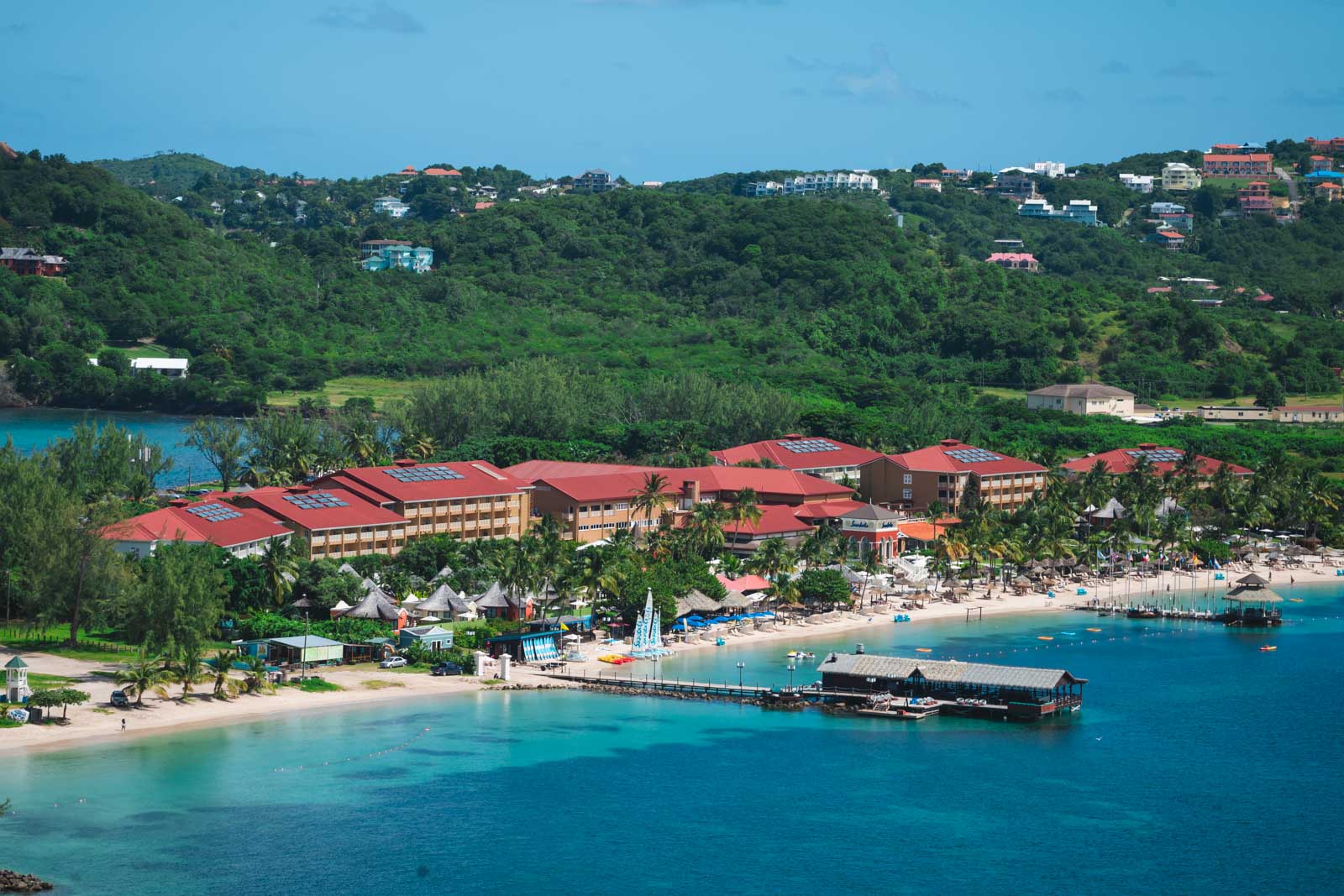
St Lucia might have a slightly spiked crime rate, but as a whole, it’s still great for a family holiday. This is because there’s a solid infrastructure of family-friendly resorts, and even problematic areas are safe in the daytime. A family with young children isn’t going to be out and about at night anyway. Hence, you are in an excellent position to explore Saint Lucia safely.
If you have responsible and experienced adult travelers, you will love visiting Saint Lucia as a family. Just be wary of things like riptides at the beach (shallow water can still be deceptively strong), choose where your hotel is located carefully, and avoid isolated areas or renowned urban districts at night.
It might be worth sticking to the north side of Saint Lucia, where plenty of family-friendly resorts exist.
Visiting St Lucia: FAQs
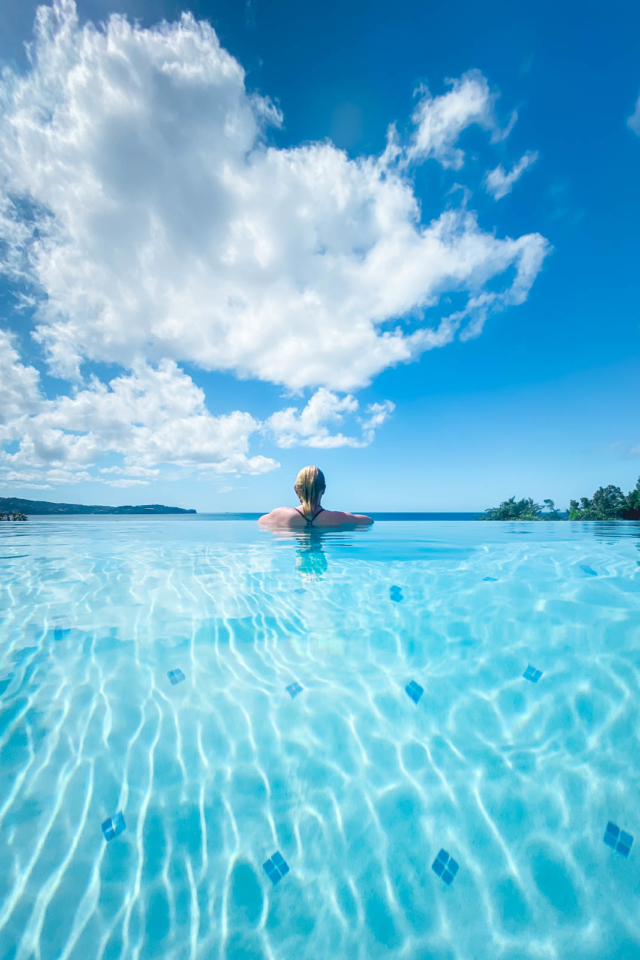
When planning a secure trip to St Lucia, it’s important to factor in when you’re going, who you’re going with, and what you’re going to do there. All of these factors play a huge part in how safe your time in Saint Lucia will be.
If you’re an experienced traveler, you won’t have any issues navigating Saint Lucia. Here are some quick FAQs to solidify all of the safety tips we’ve run over.
Overall, very safe. Just be wary of specific areas like Anse Le Raye (known for armed robberies) and take care at night and in remote areas, where there’s a heightened risk of assault and theft.
St Lucia is slightly more dangerous than Jamaica, with a spiked homicide rate of 77.6 percent versus Jamaica’s 52.9 percent in 2022.
The weather in Saint Lucia from August to October is pretty horrific. This is when you get the most rain, and it’s the peak of hurricane season, meaning there is a risk of disruption and a serious risk of flash floods.
Absolutely. Saint Lucia is a wonderful place to visit. Its fascinating geographical layout offers lots of activities, like hiking and driving into the world’s only drive-in volcano.
Is St Lucia Safe? Final Thoughts
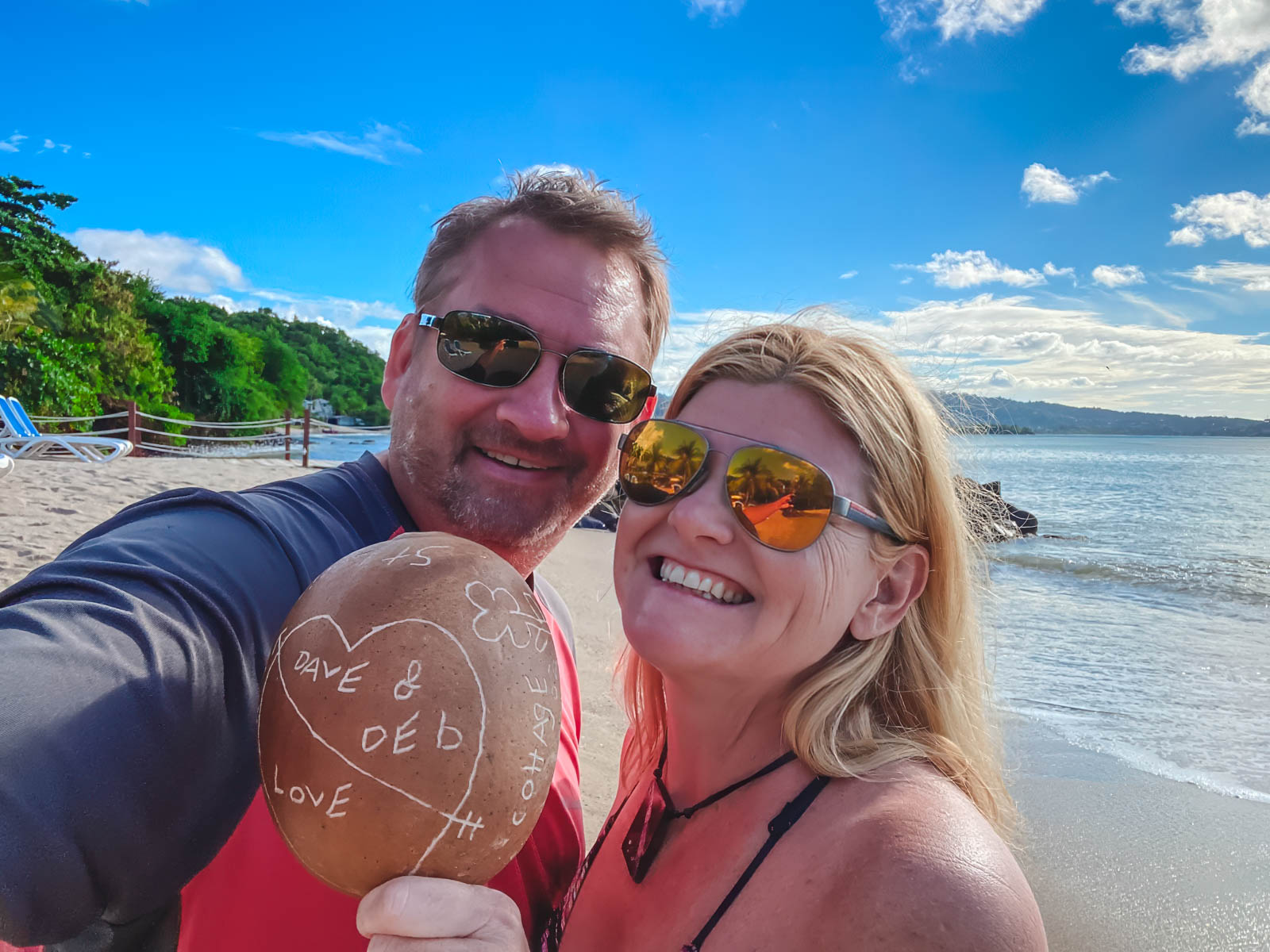
As you can see, Saint Lucia is a country with some crime risks and dangers. While there is a risk of hurricanes and volcanoes, more severe events are rare. Always pick reputable accommodation, research hurricane season, and take standard travel precautions, and you’ll have a fantastic time. Saint Lucia really is a beautiful country when you visit with your head firmly screwed on.
That’s all from us; Saint Lucia is one of our top recommendations for island holidays in the Caribbean. The rugged volcanic landscape with jutting peaks behind white sand beaches is iconic. And its luxury accommodation scene is equally impressive. If you’d like further inspiration on traveling to Saint Lucia, check out our comprehensive guide to the best things to do in Saint Lucia – including the only drive-in volcano in the world.


